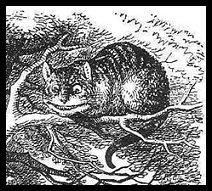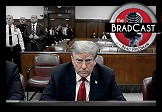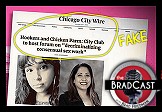Guest blogged by Jon Ponder, Pensito Review.
 In its May 29 edition, the New York Times contributed another meme to the myth of John McCain. The Times' front-page profile led with this:
In its May 29 edition, the New York Times contributed another meme to the myth of John McCain. The Times' front-page profile led with this:
But Mr. McCain, the son and grandson of revered Navy admirals, was having second thoughts about following his family’s vocation. He had spent the previous four years as the Navy’s liaison to the Senate, sampling life in the world’s most exclusive club ...
He had found a sense of purpose in an apprenticeship to some of the Senate’s fiercest cold warriors. And in Senator John G. Tower, a hawkish Texas Republican, he had found a new mentor, beginning a relationship that many compared to the bond between a father and son.
With Mr. Tower’s encouragement, Mr. McCain declined the prospect of his first admiral’s star to make a run for Congress, saying that he could “do more good there,” Mr. Lehman recalled. But Mr. Lehman knew duty was only part of the reason.
“He just loved it up there,” Mr. Lehman recalled. “Like very few military people, John heard the music up there, and he really wanted to do it.”
Got that? McCain gave up the opportunity to become the first third-generation admiral in order to become a lowly congressman. Sounds plausible but, writing in Huffington Post, Jeffrey Klein calls this story "highly improbable." Reasons for doubt include the fact that in his memoir, Worth Fighting For, McCain did not mention that he had nobly turned down a promotion to admiral, with all its dynastic implications, to pursue a career in public service. In fact, McCain's own assessment was he was very likely unqualified to be an admiral. Klein also cites the fact that, over the years, none of McCain's close friends has ever mentioned his turning down the promotion --- and the fact that a promotion for McCain at that juncture would have gone against the Navy's strict pecking order, leapfrogging him to the top of the ranks past others who had waited their turns. And, Klein says, John Lehman a) had only been on duty as secretary of the Navy for two months at that point and b), as secretary, he was not in charge of who got promoted to admiral.
Finally, Klein notes that the Times article failed to point out that Lehman is now a McCain adviser.
Myths about John McCain die hard, and you can bet that this shiny new bullet-point is now a fact in his resume, even if it is not true.
And yet there has been considerable chipping away at the McCain mythologies lately, much of which has been coming from an unexpected source: the candidate himself. In fact, John McCain has done more to expose the reality behind the fabulations that he is a straight-talking maverick than his political enemies ever could.
The prime instance of this is the fantasy that he is a straight talker. In this month alone, McCain has contradicted himself in public statements no less than 10 times. The list of McCain's flipflops as of June 16, which was compiled by by Jon Perr, writing at Crooks and Liars, ranges from the media's treatment of Hillary Clinton to privatization of Social Security, to the estate tax, domestic spying, restoring the Everglades, opposing investigations into Hurricane Katrina and more.
And then there is the myth that McCain is a maverick --- you know, the sort of maverick who voted with his Dear Leader 95 percent of the time last year.
Underpinning the McCain mythos is his service in the military. But in his Huffington Post article, Jeffrey Klein found that a close examination of McCain's time in the service reveals faint echoes of George W. Bush's approach. Like Bush, McCain was admittedly more focused on partying than on duty, God and country, and, like Bush, he used highly placed connections to receive plum assignments that should have gone to more qualified men. Klein writes:
The most accomplished midshipmen compete furiously for the few carrier pilot openings. After four abysmal academic years at Annapolis distinguished only by his misdeeds and malfeasance, no one with a record resembling McCain's would have been offered such a prized career path.
McCain had more than his share of flight mishaps --- five fighter jets he was piloting were totaled, each of which cost the military (and the taxpayers) multiple millions of dollars. Klein notes that, according to John McCain, a favorable biography by Robert Timberg, McCain lost three jets due to what might be called "single-jet accidents":
One Saturday morning, as McCain was practicing landings, his engine quit and his plane plunged into Corpus Christi [Bay]. Knocked unconscious by the impact, he came to as the plane settled to the bottom...
McCain was an adequate pilot, but he had no patience for studying dry aviation manuals ... His professional growth, though reasonably steady, had its troubled moments. Flying too low over the Iberian Peninsula [near Gibraltor], he took out some power lines, which led to a spate of newspaper stories in which he was predictably identified as the son of an admiral...
[In 1965] he flew a trainer solo to Philadelphia for the Army-Navy game. Flying by way of Norfolk, he had just begun his descent over unpopulated tidal terrain when the engine died. 'I've got a flameout,' he radioed. He went through the standard relight procedures three times. At one thousand feet he ejected, landing on the deserted beach moments before the plane slammed into a clump of trees."
In addition to the three crashes for which McCain was responsible to some degree, he was also involved in an incident onboard the aircraft carrier, the USS Forrestal. On July 29, 1967, off the coast of Vietnam, McCain was in the cockpit of his A-4 Skyhawk waiting for takeoff on a bombing mission when a rocket on another plane accidentally fired and hit his jet. He escaped but 134 sailors died in the explosions that resulted. About 20 aircraft were destroyed and the ship almost sank.
The fifth and final Navy jet lost under McCain's command was the one he was flying when he was shot down over Hanoi.
Which brings us to the most sensitive area of the McCain myth: His status as a war hero. In 1997, on "60 Minutes," McCain famously described his contribution to the war effort this way:
“I am a war criminal ... I bombed innocent women and children.”
After his capture in Hanoi on Oct. 26, 1967, he was treated for his wounds and tortured:
Here's HuffPost's Jeffrey Klein on McCain's POW years:
Perhaps it was this feeling of superiority that McCain projected toward his fellow POWs that fueled the residual hatred many of them directed back at him in 1992, when a Senate select committee on which McCain served held hearings into the treatment of war prisoners and the status of soldiers missing in action in Vietnam. Led by Rep. "B1 Bob" Dornan, the Republican firebrand from Orange County, Calif., and the select committee's Republican vice chair, Sen. Bob Smith of New Hampshire, the ex-POWs made incendiary charges against McCain, accusing him of collaborating with the enemy when he was in the camps. They also said the Vietnamese government suppressed evidence of McCain's betrayal --- the transcripts of interviews he gave to the communist media while he was a POW --- in return for his support of the U.S.-Vietnam normalization treaty.
(For more on the accusations against McCain, there is a new story at Counterpunch, John McCain: War Hero or North Vietnam's Go-To Collaborator?, by Douglas Valentine. You'll also find a video, with transcript, here from 1992, in which the ex-POWs presented their allegations.)

The charge that McCain was a collaborator is unlikely to show up in attacks ads from liberal groups in 2008 similar to the conservatives' Swiftboat ads against John Kerry in 2004. And yet Republican National Committee Chairman Mike Duncan has stated plainly that the RNC plans to smear Barack Obama's tenuous association with William Ayers, the Vietnam-era radical who was accused of bombing government buildings in the 1970s.
McCain himself said he reached his breaking point as a POW, implying that he cracked under the brutal treatment and did things he was ashamed of. Leaving the question of his alleged collaboration moot, his experience in the camps still prompts a question about his integrity: Why would McCain, a victim of years of torture 40 years ago, vote to permit the torture of other people today?
The answer is politics. McCain voted to cover Bush's waterboarding policy to appeal to the GOP's terror-crazed base, whom he will need if he is to be elected in November. It was a decision made against principle in order to gain power --- a choice that signals McCain's willingness to compromise his integrity in the expediency of the moment.
Since McCain lost to Bush in the 2000 Republican primaries, his integrity --- the straight talk, his maverick positions, his principled stands --- have all slowly disappeared --- just like the Cheshire cat in Alice in Wonderland, who "vanished quite slowly, beginning with the end of the tail, and ending with the grin, which remained some time after the rest of it had gone," leaving us to wonder if there had ever been anything real there at all.


 Bad Climate News for Home, Car Owners; Good Labor News for Workers in the South: 'BradCast' 4/18/24
Bad Climate News for Home, Car Owners; Good Labor News for Workers in the South: 'BradCast' 4/18/24 'Green News Report' 4/18/24
'Green News Report' 4/18/24
 SCOTUS Suddenly Worried About Overcriminalization ... for J6 Insurrectionists: 'BradCast' 4/17/24
SCOTUS Suddenly Worried About Overcriminalization ... for J6 Insurrectionists: 'BradCast' 4/17/24 'Trump Media' Plummeting, MAGA Buyers Losing Life Savings: 'BradCast' 4/16/24
'Trump Media' Plummeting, MAGA Buyers Losing Life Savings: 'BradCast' 4/16/24 'Green News Report' 4/16/24
'Green News Report' 4/16/24 Trump's First Criminal Trial, for Cheating in 2016, Begins in NY: 'BradCast' 4/15/24
Trump's First Criminal Trial, for Cheating in 2016, Begins in NY: 'BradCast' 4/15/24 Sunday 'Party Like It's 1864' Toons
Sunday 'Party Like It's 1864' Toons Biden Closes 'Gun Show Loophole'; Repubs Turn Desperate: 'BradCast' 4/11/24
Biden Closes 'Gun Show Loophole'; Repubs Turn Desperate: 'BradCast' 4/11/24  'Green News Report' 4/11/24
'Green News Report' 4/11/24 'Pink Slime': Fake 'Local News' Sites Proliferating in Advance of Election: 'BradCast' 4/10/24
'Pink Slime': Fake 'Local News' Sites Proliferating in Advance of Election: 'BradCast' 4/10/24 Dirty Tricks and the Dirtiest Candidate Of All Time: 'BradCast' 4/9/24
Dirty Tricks and the Dirtiest Candidate Of All Time: 'BradCast' 4/9/24 'Green News Report' 4/9/24
'Green News Report' 4/9/24 'Titanic Law' Reform Just Tip of Iceberg in Quest for Key Bridge Accountability: 'BradCast' 4/8/24
'Titanic Law' Reform Just Tip of Iceberg in Quest for Key Bridge Accountability: 'BradCast' 4/8/24 Sunday 'Dark Days Indeed' Toons
Sunday 'Dark Days Indeed' Toons Trump's Very Bad Day in Court(s), Other Good (& Less Good) News: 'BradCast' 4/4
Trump's Very Bad Day in Court(s), Other Good (& Less Good) News: 'BradCast' 4/4 'Green News Report' 4/4/24
'Green News Report' 4/4/24 WI Supremes May Restore Drop-Box Voting
WI Supremes May Restore Drop-Box Voting WI Voters Approve Election Crippling Ballot Measures: 'BradCast' 4/3/24
WI Voters Approve Election Crippling Ballot Measures: 'BradCast' 4/3/24  Politico's Josh Gerstein Owes a Retraction
Politico's Josh Gerstein Owes a Retraction More GOP Election Fraud; Overdue Justice for Crystal Mason: 'BradCast' 4/2/24
More GOP Election Fraud; Overdue Justice for Crystal Mason: 'BradCast' 4/2/24 Last Week Today with OG Bloggers:
Last Week Today with OG Bloggers: It's Up to You, New York: 'BradCast' 3/21/24
It's Up to You, New York: 'BradCast' 3/21/24 'It All Comes Down to Brett and Amy': 'BradCast' 3/20/24
'It All Comes Down to Brett and Amy': 'BradCast' 3/20/24 American 'Bloodbath': 'BradCast' 3/19/24
American 'Bloodbath': 'BradCast' 3/19/24
 VA GOP VOTER REG FRAUDSTER OFF HOOK
VA GOP VOTER REG FRAUDSTER OFF HOOK Criminal GOP Voter Registration Fraud Probe Expanding in VA
Criminal GOP Voter Registration Fraud Probe Expanding in VA DOJ PROBE SOUGHT AFTER VA ARREST
DOJ PROBE SOUGHT AFTER VA ARREST Arrest in VA: GOP Voter Reg Scandal Widens
Arrest in VA: GOP Voter Reg Scandal Widens ALL TOGETHER: ROVE, SPROUL, KOCHS, RNC
ALL TOGETHER: ROVE, SPROUL, KOCHS, RNC LATimes: RNC's 'Fired' Sproul Working for Repubs in 'as Many as 30 States'
LATimes: RNC's 'Fired' Sproul Working for Repubs in 'as Many as 30 States' 'Fired' Sproul Group 'Cloned', Still Working for Republicans in At Least 10 States
'Fired' Sproul Group 'Cloned', Still Working for Republicans in At Least 10 States FINALLY: FOX ON GOP REG FRAUD SCANDAL
FINALLY: FOX ON GOP REG FRAUD SCANDAL COLORADO FOLLOWS FLORIDA WITH GOP CRIMINAL INVESTIGATION
COLORADO FOLLOWS FLORIDA WITH GOP CRIMINAL INVESTIGATION CRIMINAL PROBE LAUNCHED INTO GOP VOTER REGISTRATION FRAUD SCANDAL IN FL
CRIMINAL PROBE LAUNCHED INTO GOP VOTER REGISTRATION FRAUD SCANDAL IN FL Brad Breaks PA Photo ID & GOP Registration Fraud Scandal News on Hartmann TV
Brad Breaks PA Photo ID & GOP Registration Fraud Scandal News on Hartmann TV  CAUGHT ON TAPE: COORDINATED NATIONWIDE GOP VOTER REG SCAM
CAUGHT ON TAPE: COORDINATED NATIONWIDE GOP VOTER REG SCAM CRIMINAL ELECTION FRAUD COMPLAINT FILED AGAINST GOP 'FRAUD' FIRM
CRIMINAL ELECTION FRAUD COMPLAINT FILED AGAINST GOP 'FRAUD' FIRM RICK SCOTT GETS ROLLED IN GOP REGISTRATION FRAUD SCANDAL
RICK SCOTT GETS ROLLED IN GOP REGISTRATION FRAUD SCANDAL VIDEO: Brad Breaks GOP Reg Fraud Scandal on Hartmann TV
VIDEO: Brad Breaks GOP Reg Fraud Scandal on Hartmann TV RNC FIRES NATIONAL VOTER REGISTRATION FIRM FOR FRAUD
RNC FIRES NATIONAL VOTER REGISTRATION FIRM FOR FRAUD EXCLUSIVE: Intvw w/ FL Official Who First Discovered GOP Reg Fraud
EXCLUSIVE: Intvw w/ FL Official Who First Discovered GOP Reg Fraud GOP REGISTRATION FRAUD FOUND IN FL
GOP REGISTRATION FRAUD FOUND IN FL


































